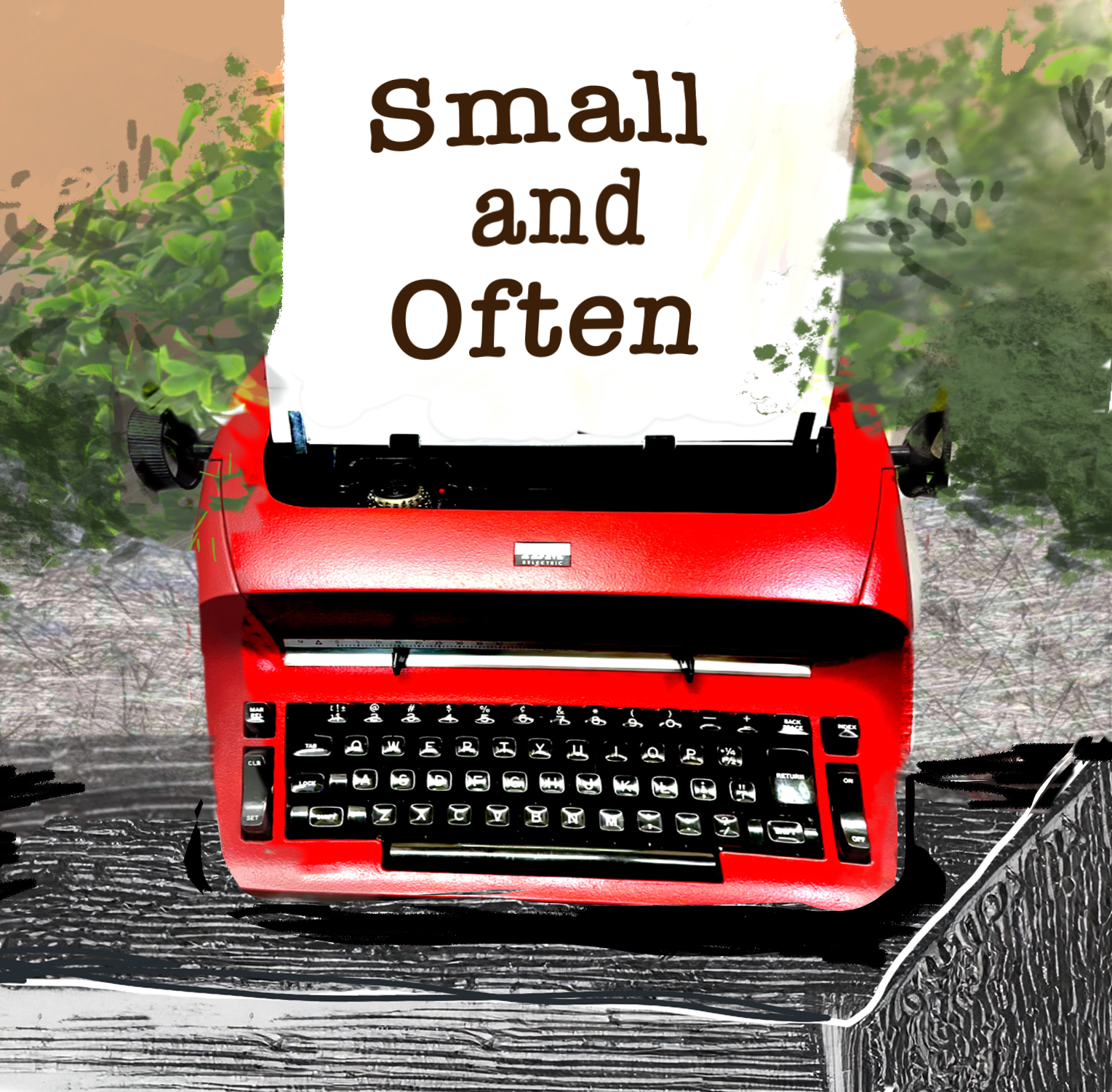Change The Way You Change
As I have said before, trauma is an event larger than your coping strategies. Distortions of thought get locked inside your brain. It can feel like a failure of willpower to get rid of “STINKin’ THINKin.”
It is tough. Defeating–when you try a thousand cures but the bad beliefs persist. Not to mention, intrusive nightmares and distorted fears about how life will unfold. These can ambush you hourly during the first few days after a traumatic event. These thoughts feel like permanent occupants in your brain.
Why?
Why is it so hard to replace thoughts… and
WHAT HELPS?
Part one- Using a poem, like the poem I provide below, is one method. Read and listen to From Out the Cave (BELOW) to see your patterns of disconnection.
___________________________________________________________
SMALL AND OFTEN
A question to contemplate:
If a thousand distracted choices have lined up end to end to make you a stranger to yourself — What would a thousand attuned choices feel like?
I believe the term distraction is a nice way to say ‘dissociation.’
When you zone out it may appear to others that your body is stiff or in a trance.
Your face may show others a frozen affect. Sometimes people say, “the lights are on but nobody is home.”
Those that knew you before the trauma, when you were lively, may sense that the animated, churning, and lively stuff of your soul is buried behind a paywall. Trauma memories have stopped the spontaneous streaming of your emotional expressions and being in touch with your longings. What is going on? Much of your liveliness is being strangled by fear.
_________________________________________________________________
Brene Brown and David Whyte speak about this as not being wholehearted. I recommend reading their thoughts about the ways that we slip out of being wholehearted.
Today I want to encourage you to think of healing as actions you take that are SMALL and OFTEN. The small and often method is an approach that might be similar to the 12 Step mantra of doing the next right thing. I love that mantra but I would just add that rewiring the brain comes from repetitive discipline. So doing “the next right thing, small and often” would make me happy.
FINAL THOUGHTS
If I take one behavior at a time (and without judgment), I say, “What is my option to tune in instead of tuning out?” –that small question can open up a path of truth– a way out of stuck confusion.
Recovery from trauma is one attunement step begetting another attunement step.
Do this in small ways-
Do this often to see a big change.
Trauma is described accurately in the poem as an ‘everyday nightmare’ by Joyce Sutphen. I love the way the poem describes waking up to life. I whisper the words, YOU COULD GO BACK TO THE LAST THING YOU DID WITH YOUR WHOLE HEART” occasionally. I have committed it to memory. In this way I borrow the poet’s courage. If I follow her lead I can dust off my wholehearted self, give it sunshine. I can participate in my rescue. I can attune and bring my soul back online.
FROM OUT THE CAVE
BY JOYCE SUTPHEN
When you have been
at war with yourself
for so many years that
you have forgotten why,
when you have been driving
for hours and only
gradually begin to realize
that you have lost the way,
when you have cut
hastily into the fabric,
when you have signed
papers in distraction,
when it has been centuries
since you watched the sun set
or the rain fall, and the clouds,
drifting overhead, pass as flat
as anything on a postcard;
when, in the midst of these
everyday nightmares, you
understand that you could
wake up,
you could turn
and go back
to the last thing you
remember doing
with your whole heart:
that passionate kiss,
the brilliant drop of love
rolling along the tongue of a green leaf,
then you wake,
you stumble from your cave,
blinking in the sun,
naming every shadow
as it slips.
| not assigned | listening corner | Listening Room |
